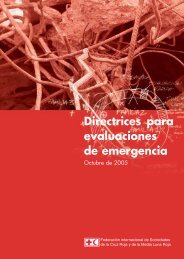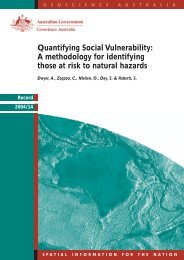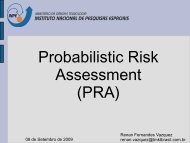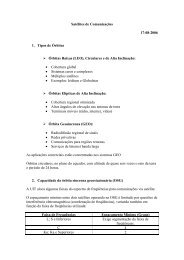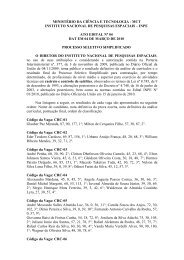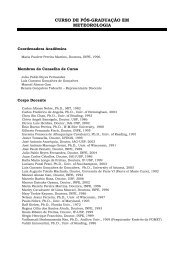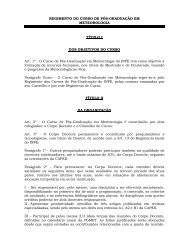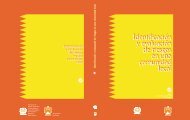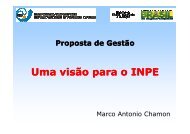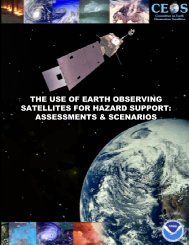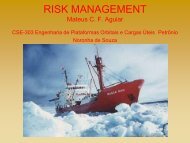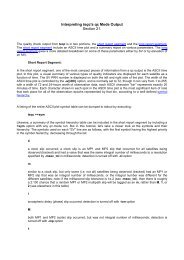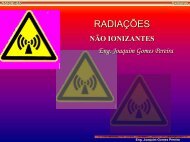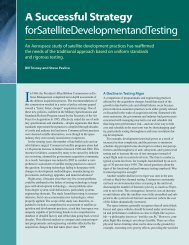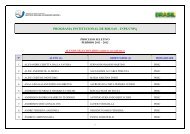Living with Risk. A global review of disaster reduction initiatives
Living with Risk. A global review of disaster reduction initiatives
Living with Risk. A global review of disaster reduction initiatives
Create successful ePaper yourself
Turn your PDF publications into a flip-book with our unique Google optimized e-Paper software.
Division for the Advancement <strong>of</strong><br />
Women: DAW promotes and supports the<br />
mainstreaming <strong>of</strong> a gender perspective into<br />
the work <strong>of</strong> intergovernmental bodies, policy<br />
and programmes <strong>of</strong> departments and<br />
<strong>of</strong>fices <strong>of</strong> the United Nations Secretariat<br />
and the United Nations system at the<br />
national and regional levels. The Division<br />
also provides substantive servicing to the<br />
Economic and Social Council functional<br />
commission, CSW, which is composed <strong>of</strong> 45<br />
members elected by the Council for a period<br />
<strong>of</strong> four years.<br />
Related international commitments and the UN role in <strong>disaster</strong> risk <strong>reduction</strong><br />
Activities <strong>of</strong> this <strong>of</strong>fice include basic research<br />
programmes for (a) the design <strong>of</strong> communitybased<br />
projects for <strong>disaster</strong> management planning;<br />
and (b) <strong>disaster</strong> management capacitybuilding<br />
introducing best practices case studies<br />
in developing countries. During the past three<br />
years, the Hyogo Office has developed, tested<br />
and evaluated tools that are now recognized as<br />
the basic tools for <strong>disaster</strong> mitigation at<br />
community level. The <strong>of</strong>fice closely cooperated<br />
<strong>with</strong> the IDNDR Secretariat in carrying out<br />
the RADIUS (<strong>Risk</strong> Assessment Tools for<br />
Diagnosis <strong>of</strong> Urban Area against Seismic<br />
Disasters) Initiative (see page 75).<br />
6<br />
United Nations<br />
Division for the Advancement <strong>of</strong> Women,<br />
DESA<br />
2 UN Plaza, DC2-12th Floor<br />
New York, NY 10017, United States<br />
Fax: (+1-212) 963 3463<br />
E-mail address: daw@un.org<br />
Web site: www.un.org/womenwatch/daw/<br />
United Nations Centre for Regional<br />
Development (UNCRD)<br />
The UNCRD head <strong>of</strong>fice, located in Nagoya,<br />
Japan, was created in 1971 and encourages<br />
through its substantive programmes for training<br />
and research in regional development as<br />
well as information dissemination. The Centre<br />
reports to DESA. Since 1992 the UNCRD<br />
Africa Office based in Nairobi has been<br />
mandated to carry out training and research<br />
activities, advisory services and information<br />
exchange related to local and regional development<br />
in African countries. The UNCRD<br />
Project Office for Latin America and the<br />
Caribbean was established in Bogotá, Colombia<br />
in 1997, to carry out UNCRD activities in<br />
Latin America and the Caribbean. It conducted<br />
three sub-regional workshops (1998) in<br />
collaboration <strong>with</strong> the Organization <strong>of</strong> American<br />
States (OAS) and the IDNDR secretariat,<br />
in order to assess sectoral needs in terms <strong>of</strong><br />
vulnerability and risk <strong>reduction</strong> to natural<br />
hazards for sustainable cities and commercial<br />
corridors.<br />
The Hyogo Office conducted research projects<br />
in developing countries <strong>with</strong> specific focus on<br />
urban vulnerability to earthquakes at the pre<strong>disaster</strong><br />
stage (Global Earthquake Safety Initiative<br />
(GESI)) and on rural vulnerability to<br />
earthquakes at the post-<strong>disaster</strong> stage (rehabilitation).<br />
In the latter the Gujarat earthquake was<br />
given special attention. In addition to these<br />
yearly programmes the Hyogo Office has been<br />
involved in developing a <strong>global</strong> database <strong>of</strong><br />
active faults, and its possible hazards, in cooperation<br />
<strong>with</strong> the Asian Disaster Reduction<br />
Center (ADRC). It is also engaged in a<br />
community development project in Kathmandu<br />
Valley, Nepal, and a project promoting the<br />
concept <strong>of</strong> a School Earthquake Safety Initiative<br />
(SESI).As part <strong>of</strong> the <strong>disaster</strong> education<br />
campaign, the Hyogo Office initiated a Culture<br />
Exchange Programme between the high school<br />
students <strong>of</strong> Kathmandu, Nepal, and Kobe,<br />
Japan. The Office performed training<br />
programmes and capacity-building in urban<br />
and rural communities, organized workshops<br />
for the dissemination <strong>of</strong> best practices, provided<br />
advisory services and promoted networking<br />
<strong>of</strong> different sectors <strong>of</strong> communities.<br />
UNCRD Web site: www.uncrd.or.jp<br />
Disaster Management Planning Hyogo Office<br />
IHD Centre Building, 3F,<br />
1-5-1 Wakihaka Kaigan-dori, Chuo-ku,<br />
Kobe 651-0073, Japan<br />
Web site: www.hyogo.uncrd.or.jp<br />
The UNCRD Disaster Management Planning<br />
Hyogo Office was established in Kobe,<br />
Hyogo Prefecture, in 1999 in the aftermath <strong>of</strong><br />
the Great Hanshin-Awaji earthquake <strong>of</strong> 1995.<br />
305



